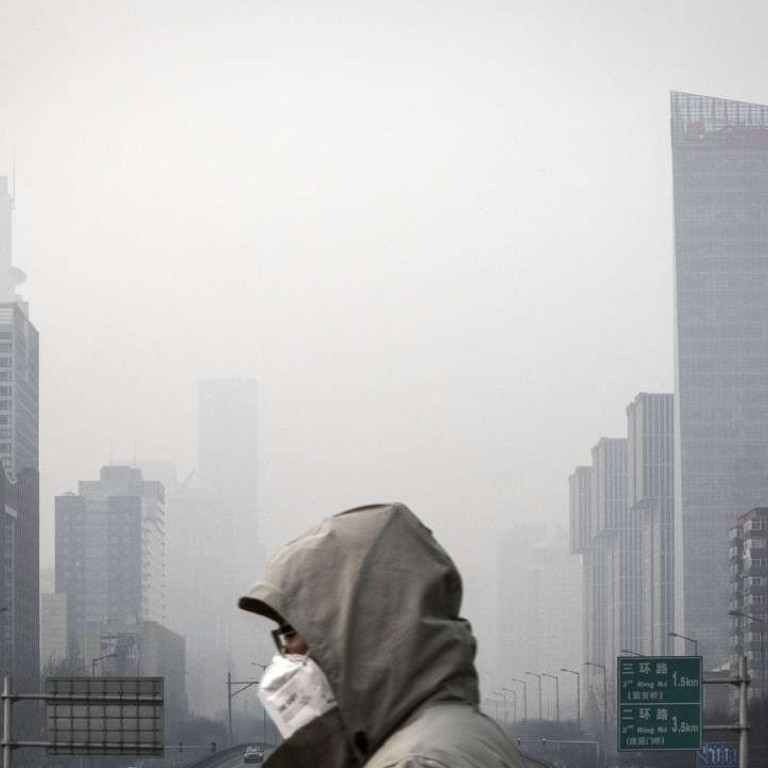
New | Who’s cashing in while China chokes?
Here are some of the companies and entrepreneurs seizing on the business opportunities created by China’s chronic air pollution
Who’s cashing in on China’s smog?
The pungent air smothering China’s major cities has raised concerns for millions of residents over the long term health effects on the elderly, the infirm and the young. For now, some entrepreneurs are turning crisis into opportunity.
Product: “Anti-smog” tea
The Taiwan instant noodles producer and soft drinks bottler launched a tea called Lilai Wusan (梨來霧散), which is a concoction of pear juice, honey, dried chrysanthemums and mint essence that “moistens the lungs and combats smog.”
Product : Facial masks
Company: 3M Co., Uvex Group
Nobody ventures outdoors during Beijing’s bleak winters without a face mask, not for the cold but as protection against the putrid air from open coal fires.
Facial mask sales on Tmall and taobao platforms more than tripled in November, with masks sold out at 7-Eleven stores.
The demand has also spilled over to brands including Honeywell(US) and Cleancool(China), according to 10bandchina.com.
Product: Air purifier
Company: IQAir, Dyson Ltd, Xiaomi
Dyson chose China for its 2015 global launch of a purifier that eliminates 99 per cent of harmful particles, a shrewd marketing move that bolstered sales by 35 per cent, underpinned mostly by demand in the world’s most polluted cities.
The real Dyson model costs 4,114 yuan (US$600), while the Swiss-made IQAir costs 20,000 yuan, driving some budget shoppers to Xiaomi. The smartphone maker’s Mi Air Purifier sells for a modest 900 yuan.
Product: Smog-evading tour packages
Companies: Hotels in Sanya, Phuket, Xiamen, Xishuangbanna
Every winter, hordes of tourists from China’s frigid north pack the beaches, golf courses and malls of Sanya, Xiamen, Lijiang or Kunming to escape the smog.
Tour packages under the “Smog Avoidance” label doubled during the 2016 Christmas and New Year holidays, according to Ctrip’s data. The most sought-after destinations were Sanya, Xiamen, and Phuket. Some tourists even turned into property buyers, leading to a real estate boom in Xishuangbanna in Yunnan province.
Product: Bottled Air
“Air farming” is the to-die-for product of these acrid times in China. Bottled fresh air from the verdant hills of Europe, Canada and New Zealand is sold to affluent -- and desperately gullible -- Chinese customers.
Among those cashing in is Breathe Ezy, which ships canisters of air from the South Island of New Zealand for 169 yuan (HK$189) each.
Aethaer collects air from the British countryside in Somerset, Wales and Dorset while Vitality Air offers oxygen from Canada’s Rocky Mountains.
So if zipping off to New Zealand isn’t an option, a canister of South Island air may just offer 150 brief puffs of respite from Beijing’s smog.

